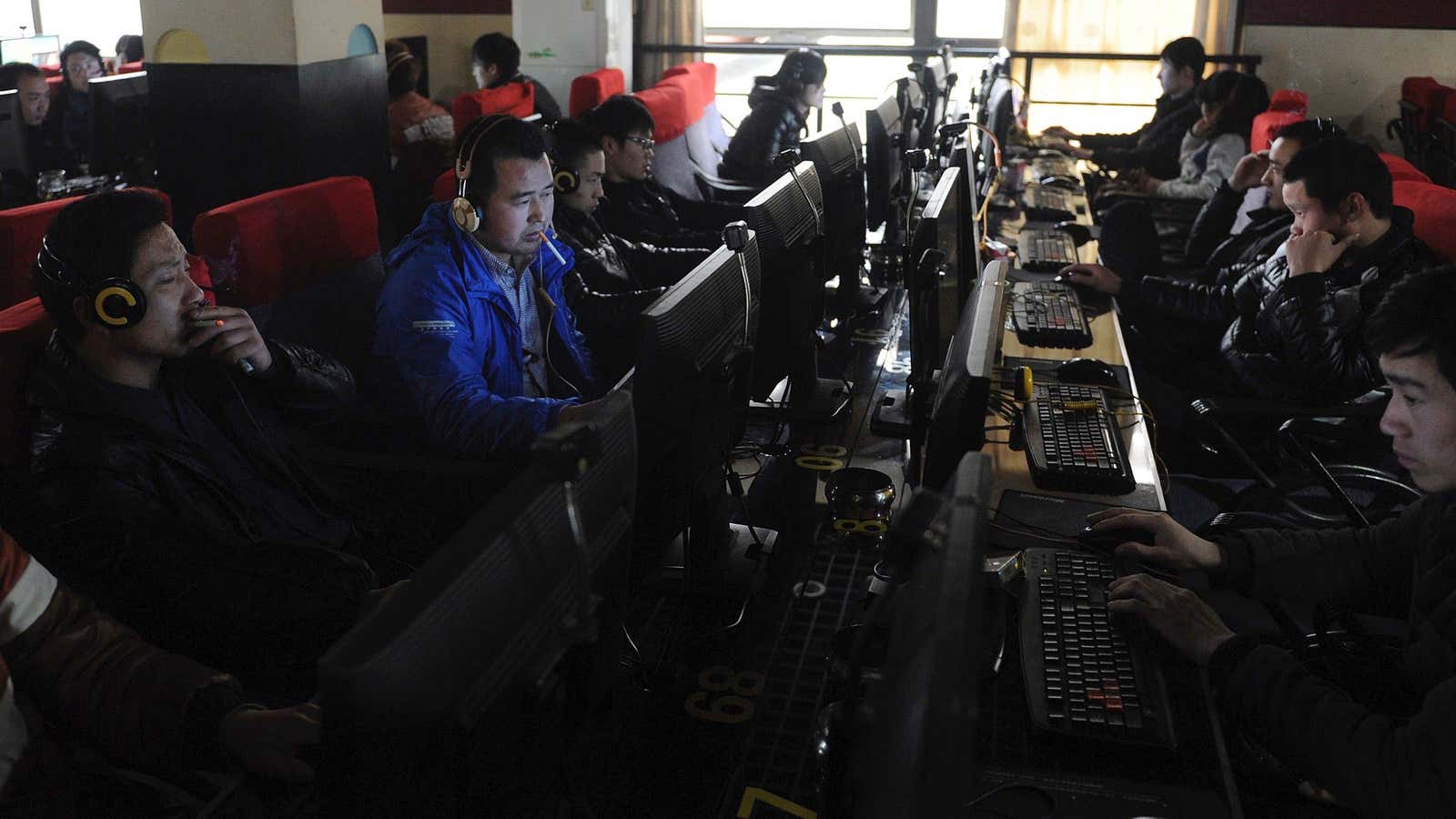Already battling air pollution, Chinese authorities now want to tackle language pollution. At a symposium in Beijing this week attended by Sina, Tencent, and other internet companies, the head of the nation’s cyberspace administration highlighted 25 examples of coarse language the government wants removed online.
China has long policed the internet, quietly blocking or detaining those who get too outspoken. Recently the government has become more public about efforts to patrol the internet for cyber crimes, with “internet police” opening social media accounts and even reaching out for followers.
As for bad language, China has about 650 million internet users, and apparently many of them are foul-mouthed. The 25 words highlighted by Lu Wei—chief of China’s internet arbiter—were the most widely used “vulgar terms” on Sina Weibo, according to a recent study (link in Chinese) by the People’s Daily.
But what Chinese authorities consider vulgar in Mandarin can sometimes seem curious, innocuous, or amusing in translation.
Consider jiaoshou, which in its original form means “professor.” Switch the Chinese characters and you have something that is pronounced the same yet reads as “howling monster.” It is often used to call out experts who upset China’s netizens.
Connotations are also out. One of the 25 terms, nima, is a homonym for “your mom,” and it is an abbreviation of a three-word insult (the full insult, in English, includes putting a four-letter verb in front of “your mom.”)
Some phrases translate very well, like “egg ache,” where “egg” is the common way to refer to testicles. That describes something unreasonable that a person does out of extreme boredom.
Certainly another term authorities want to ban, “green tea bitch,” will register as a profanity to many outside of China, but… green tea? The phrase is used to criticize a young woman who portrays herself as pure and innocent but uses her good looks to ruthlessly climb to power or success.
There are plenty in China who agree that such phrases are demeaning. Sina indicated it might add the offensive words to the filtering system on its Weibo microblogging platform, which would automatically remove any posts containing them.
There may be a more political agenda at work. The phrase containing a four-letter-word plus ”your mom” actually has a complicated history in China: A pun on that phrase sounds very much like “grass mud horse,” a fictional animal that has become the de facto mascot of internet freedom in China. And diaosi, which used to mean “good-for-nothing,” has taken on a meaning closer to “the powerless and downtrodden.”
Zheping Huang contributed reporting.




